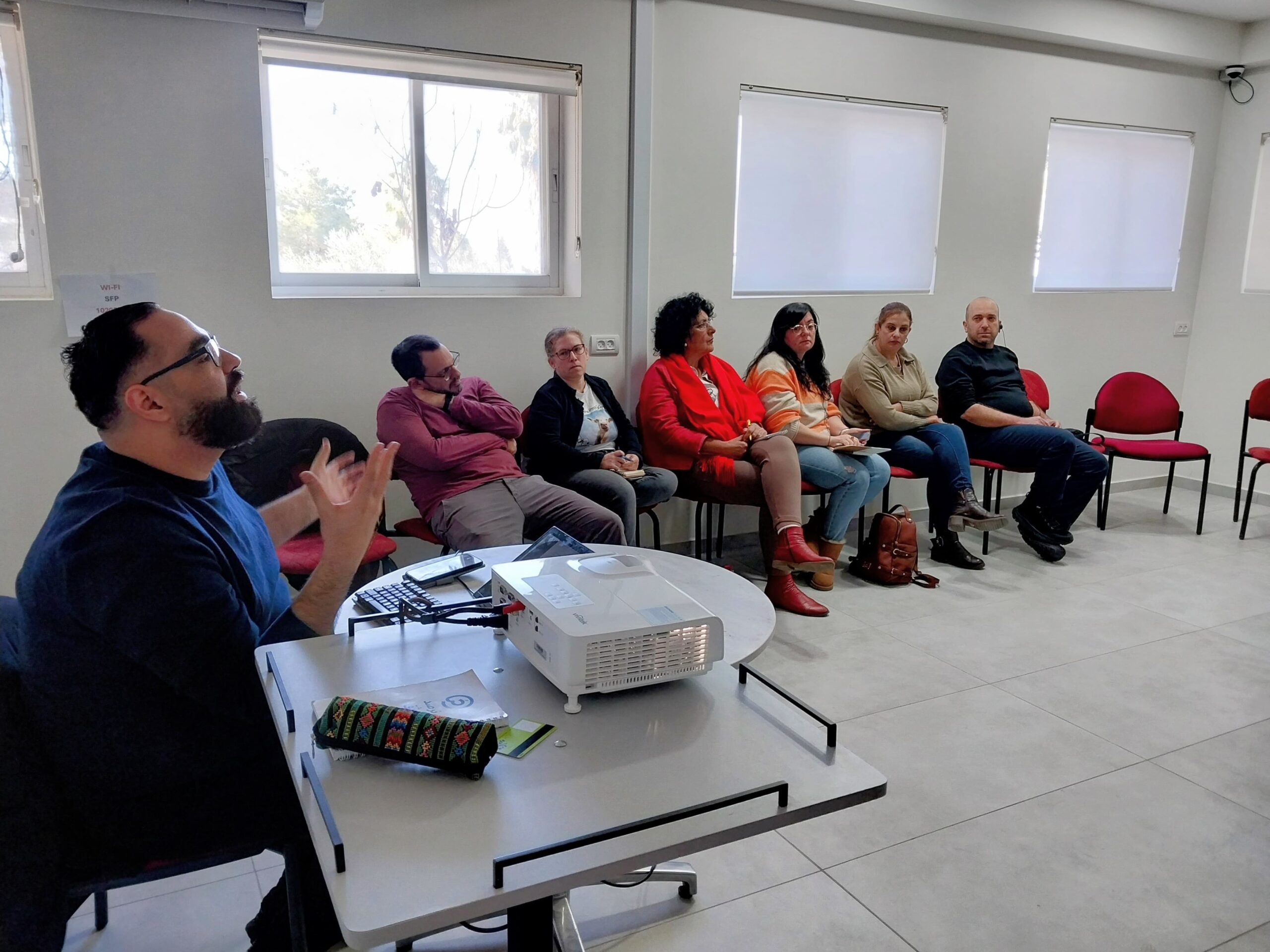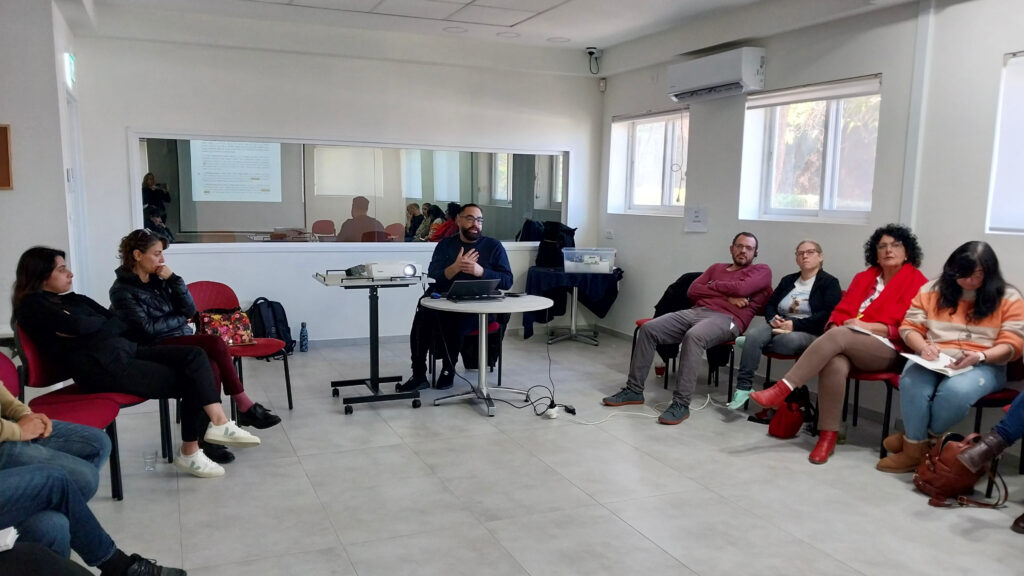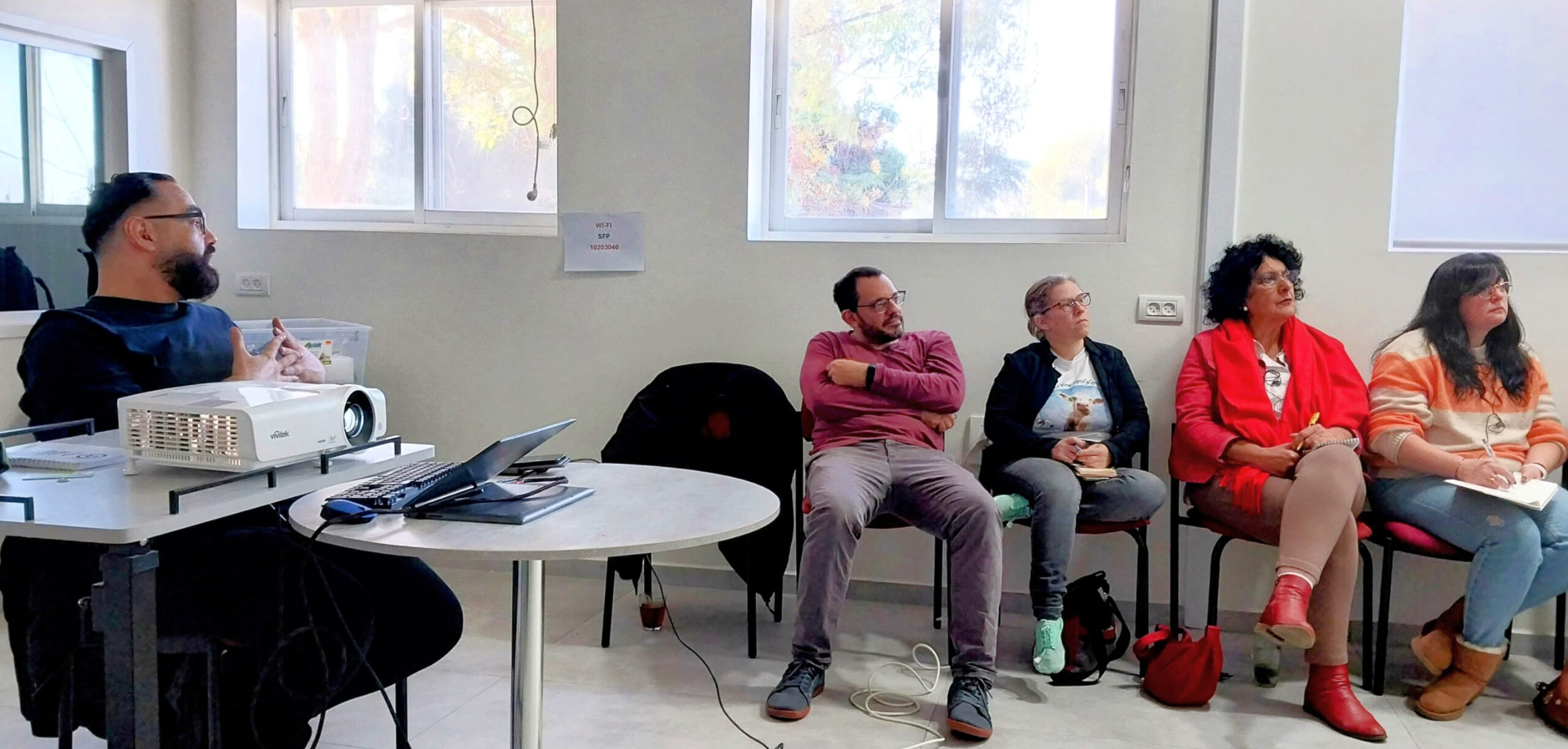Team Learning Series | a Deep Dive Into Topics and Challenges Central to Our Work During Wartime
Session Spotlight: Normalization, Anti-normalization, and their Connection to SPF’s Educational Work
With the devastating war that began in October 2023 now in its second year, the School for Peace recognized the need for a deep-dive revisit of our internal processes and the challenges we face to ensure that dialogue facilitators are equipped with the most effective tools available to navigate the shifting landscape within which we operate. SFP therefore launched a new series of programs that clarify, refine, and maximize the role of our educational team in the struggle to end the current war and broader injustices. By utilizing insights and skills gained from experts in some of the most contentious issues facing us, our dialogue facilitators undergo a rigorous process of individual and team self-reflection in order to acquire important knowledge and tools that can effectively transform personal and collective consciousness to promote social change.
The Team Learning Series consists of intensive learning days for SFP dialogue facilitators that explore topics increasingly central to our work. These include normalization, the role of international pressure, sanctions and boycott movements in conflict transformation, comparative systems of peace processes such as those of South Africa and New Zealand, and the critical role of indigenous voices in promoting justice. By unpacking these subjects together with leading professionals in the field (including cultural heritage and nonviolent resistance expert, Professor Marwan Darwish, and Professor Alon Liel, Israel’s ambassador to South Africa in the years of the end of apartheid and change government), the team then formulates together how to most effectively utilize and implement lessons learned.
In the unprecedented and dynamic circumstances which SFP is operating, these tools are an important addition to dialogue facilitators’ professional skillset that enables them to better navigate the task of facilitating dialogue in times of war. The intensive team process also affords SFP unique organizational cohesion and resilience that furthers our ability to address new challenges that reality presents us with. This safe space has already provided us the opportunity to explore and ask difficult questions—a rarity in the current political climate—representing an important opportunity to deepen our understanding and expand our collective impact.
Why now?
The School for Peace is an organization whose work is anchored in binationalism. Organizationally, we are a mixed team of Palestinians and Jews, leading mixed team educational programs that seek to address injustices, end oppression, and build a more egalitarian society. It is therefore not surprising that we often encounter the topic of normalization, a term that broadly refers to preservation of the occupation and of unequal power relations between Palestinians and Jews, most often under the guise of bringing the two together in dialogue groups and cooperative projects that fail to address structural inequities and historical wrongdoings.
The question thus arises on a regular basis of whether our work can be considered normalization–in recruiting participants for groups, within dialogue groups, at our conferences, and even in our day-to-day work at the office. Since criticism of Jewish-Palestinian dialogue efforts has grown within Palestinian society since the outbreak of the war in Gaza, it was important to explore the topic in a meaningful way that would provide our dialogue facilitators with a safe space to reflect on the nuances, challenges, and above all, opportunities to identify and avoid all forms of normalization in the course of our work.

What we learned
This important component of the series raised difficult questions: Does our work together as Palestinians and Jews contribute to preserving the status quo that we are seeking to change? Could our dialogue contribute, unintentionally, to normalizing unequal power relations around us? Who determines the criteria for normalization and has such criteria changed as a result of the current war? Is it even possible to engage in anti-normalization efforts within the framework of educational work that includes joint meetings, dialogue, and activism? How can joint educational work during such a difficult period contribute to the struggle for liberation, justice, and peace?
To anchor the process in a historical and theoretical framework, we were joined by activist, poet, cultural researcher and expert in the field of binational initiatives, Ali Mowassi of the Mada Al-Carmel Research Institute in Haifa. Together, we embarked on an exploration of the core issues around normalization that concern us as facilitators of Jewish-Palestinian dialogue groups.
Though answers to some of our questions were no less complex than the questions themselves, the process was important in shedding light on our own potential blind spots that might impede our ability to effectively promote SFP’s ideological goals. Most notably, it clarified an essential truth about SFP dialogue courses: at their core lies the acknowledgement of historic discriminatory power imbalances between Jews and Palestinians, alongside the need to change this reality and end oppression for the sake of justice and equality for all. SFP’s work, both in theory and practice, stands in opposition to all forms of normalization of the occupation. Moreover, the workshop helped empower participants to be vigilant about recognizing any potential instances of normalization in their work, while also creating a safe platform from which to raise questions and concerns.
During these turbulent and difficult times when the divide between Jews and Palestinians is so pronounced, it is especially important to explore together this and other issues central to our work to ensure that our efforts are maximized to bring about a more just and egalitarian society.
–


